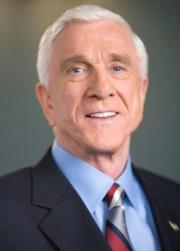This is a very old story from 2010.
I caught an episode of Rip Off Britain on BBC One this morning, and it was laying into trainee driving instructors. You can watch the episode in question on BBC iPlayer for a limited time.
This episode focuses on transport, though it is worth bearing in mind that Rip Off Britain is one of those BBC shows aimed at old(er) people who fancy a moan about something.
At 2:00 into the programme there is a segment about the average comprehensive insurance quote being over £1,000, and then it homes in on an old couple who contacted the show about “their grandson, Josh”. They say “he’s a good boy”, so it must be the insurance companies who have it wrong, eh? Just as a reality check, my insurance is less than £300 a year on my private car, and has been for many years.
Grandad became Josh’s driving instructor (they are seen moving off and driving around without any L plates at all on display). And Grandad’s logic about how those who have never had a claim (his learner grandson) shouldn’t be penalised, when the statistics show that 17 year old males (like his learner grandson) are a major risk is seriously flawed. And keep showing said grandson on the Go-kart track racing around is just further reason why 17 year old males ARE such a risk. Attitude.
I wish old people would get it through their heads: just because he/she is YOUR grandson (or granddaughter) doesn’t mean he/she is different to anyone else’s grandson (or granddaughter). He or she is more likely to be the same as most other people of the same age group.
At 22:00 into the programme, they have a segment on “scam” theory test websites (they have a thing about scam sites, and educating older people to use the Internet wisely). I’ve mentioned these sites on this blog previously.
In a nutshell, don’t book your theory (or practical) test through anything other than the official DSA (now, DVSA) website. There’s not much more you can say – and it doesn’t matter how “unfair” it is (according to one of the interviewees). What those websites are doing is not illegal, although it is morally questionable.
The segment on trainee instructors/PDIs is at 29:56 into the programme. Apparently, 1 in 10 learner drivers in the UK is being taught by a PDI, and it costs “most people around £1,600” to learn to drive. The show then homes in on a young girl who signed up with “a well known school” (I note that her offside wing mirror was gaffer-taped on) to learn.
Her tale centres on her instructor not being professional, using his mobile phone, and not turning up sometimes. She claims she didn’t learn much and her confidence was low (as you will see, it turns out her instructor was a PDI).
Now, I don’t want to take anything away from what she says, but all those things can happen with a fully-qualified instructor. And they do happen.
The programme’s main thrust, though, is the fact that learners pay full lesson prices to train with PDIs. There is also the claim made that PDIs are told to try and conceal the “pink” badge from their pupils with one large school, at least.
It is made clear that charging full price is not against any rules or laws, and it appears that all schools who use PDIs do charge full price. The AA, who only uses qualified ADIs, claims that you’re 25% less likely to pass your driving test if you’ve been taught by a PDI. BSM reckons that pupils taught by its PDIs have a pass rate 10% above the “DSA national average”.
The young girl “reckons” that schools are responsible for letting people know they are being trained by a PDI and for charging appropriately.
What puzzles me is how much they should charge. Half price keeps being mentioned, but why? Why “half price”? If you get taught by someone who turns out to be crap just because they are a PDI, why stop at half price? Why not totally free? After all, over 70% of them won’t make it to become ADIs anyway, so they will always be substandard in the end.
At 35:20 they carry out an interview with the DIA. Basically:
- ask to see the badge of your instructor: if it’s green, he’s qualified; if it’s pink, he’s a trainee
- ask his grade: 5 or 6 is good
- there is nothing wrong with the PDI system as such
- it isn’t properly supervised. THAT’S the problem
- driving schools shouldn’t be charging the full rate for lessons with a PDI
I have my own views. I didn’t go via the PDI route, but I know a lot of people who did and who became ADIs using it. I find that a lot of ADIs change their tune once they qualify – they might do the PDI route, or use the hated Red Driving School, and yet even before the examiner’s signature has dried on their Part 3 pass certificate they’re at Red’s throat and vehemently anti-PDI or anti-anyone else wanting to become ADIs.
I have always been wary of the PDI route, because as I mentioned earlier, with only around 10% of people who set out to become ADIs making it (less than 30% of those who get to Part 3 pass that), PDIs teaching learners just doesn’t make sense. And yes, it isn’t supervised properly, so many PDIs end up using the pink badge as a way of making money and not learning – which is totally against what it is supposed to be for.
Edit: I notice this is cropping up on various forums now. Some ADIs are wetting themselves over it – but they all fail to appreciate that what the programme was trying to show (i.e. charging full price for trainee instructors) is not what they want to believe (i.e. that all PDIs are bad and any company who uses them is also bad). It’s another example of ADIs twisting every detail to fit in with their own biased opinions.
The programme didn’t specifically state that any of the learners mentioned were using BSM, but the self-styled “experts” are making all sorts of stupid claims and statements on the forums. One says:
That the first time i had seen BSM pointing out that it majority instructors are not fully qualify (sic).
I didn’t hear any of that when I watched it. Another – who apparently went down the PDI route with BSM – says:
Anyway, lets hope that the long awaited reform on pink licences is just around the corner. I guess then we will see the demise of B$M.
They’re on a different planet! And they call themselves “experts”.
 Oddly, they haven’t made a decision about tomorrow (Friday) yet – maybe down to overtime or who is covering, and how far they have to travel – but the examiner also said they have cancelled all of today (Thursday).
Oddly, they haven’t made a decision about tomorrow (Friday) yet – maybe down to overtime or who is covering, and how far they have to travel – but the examiner also said they have cancelled all of today (Thursday).

 I thought to myself: “this isn’t coming off very easily”, and finished it off. Usually, by the time I get back in the car the heaters will have melted the ice on the front and back windows and I can just wipe it off. But not this time. I had to get out and scrape those, too.
I thought to myself: “this isn’t coming off very easily”, and finished it off. Usually, by the time I get back in the car the heaters will have melted the ice on the front and back windows and I can just wipe it off. But not this time. I had to get out and scrape those, too. I wanted to make sure that they understood how easy it is to slide, and how much longer it takes to stop in icy and snowy conditions. It went well for three of them and perhaps not so well (from my perspective) on the fourth.
I wanted to make sure that they understood how easy it is to slide, and how much longer it takes to stop in icy and snowy conditions. It went well for three of them and perhaps not so well (from my perspective) on the fourth. Until this morning.
Until this morning.